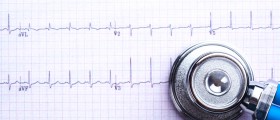
How Fatigue And Tiredness May Help Predict Heart Attack In Women
Feeling extra tired for no apparent reason? You may not have known, but it may be a sign that you are at risk of suffering a heart attack.

Hepatitis B: 4 Types of Treatment You Should Be Familiar With
Hepatitis B is an infectious disease of the liver that can take several different forms. The treatment and the outcome of this condition depend on the form this disease takes.

Dental Sealants Prevent Cavities In Children: 10 Things Every Parent Should Know
The use of dental sealants to prevent tooth decay is very popular. What are dental sealants and how do they work? Are they even worth the money? Let's find out!

Early Signs Of Heart Attack: When Should You Become Concerned About Excessive Sweating?
While it’s normal to sweat when your body wants to cool down or when you’re making an effort, sweating without a reason might be a cause for concern.

How To Recognize Left Arm Pain As A Warning Sign Of Heart Attack?
While all left arm pain should be taken seriously, if it is indeed caused by a heart attack, it’s exponentially more dangerous.

High-Sensitivity Troponin I Test: New Version Of A Blood Test That Could Help Detect Heart Attack
Researchers are very optimistic about the efficiency and accuracy of the newly discovered high-sensitivity troponin I test.

Heart Attack vs Cardiac Arrest: What's The Difference?
The link between heart attack and cardiac arrest is that the former may lead to the latter, but it’s not always the case.

Heart Attack Due To Unstable Angina: Why An Angina Diagnosis Could Save Your Life
Unstable angina is a medical emergency that generally occurs when you’re experiencing chest pain while you’re at rest.

3 Types Of Angina (Chest Pain) That May Occur With Coronary Heart Disease
There are three different types of angina that can occur alongside coronary heart disease; stable angina, unstable angina and Prinzmetal's angina. What do you need to know about them?

What Is An EKG (Electrocardiogram) And How Does It Help Diagnose Coronary Heart Disease?
One of the major diagnostic tools for heart disease is known as electrocardiogram (EKG). How can it be used to diagnose heart disease?

